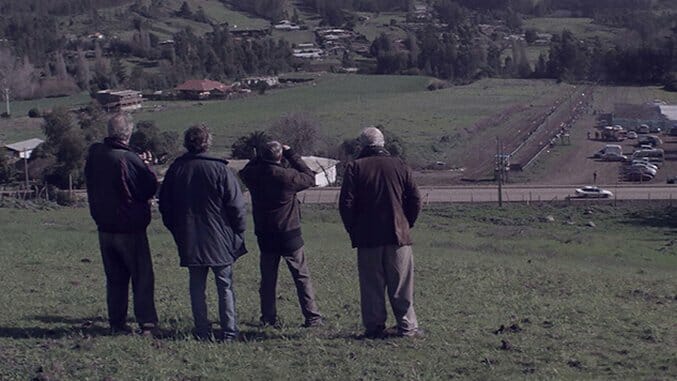The Club

If you need another reason to fume at this year’s slate of Oscar nominees, look no further than Pablo Larraín’s The Club. Think of it as a Chilean counterpoint to Tom McCarthy’s Spotlight, sans the gloss and with a greater emphasis on the guilty and afflicted than on the supposed saviors: Spotlight is about good guys taking down bad guys, while The Club inhabits the same grey moral space as John Michael McDonagh’s Calvary. That undersung film wades into the fray of the Catholic Church sexual abuse scandal with melancholy eyes and an amoral heart, coming out the other side all the more meaningful and heartbreaking for its willingness to speak to the unspeakable.
The same is true of what Larraín has accomplished in The Club, though after watching the film you may feel inspired to seek out the nearest church pew to pray. Larraín isn’t interested in concocting easy answers to the questions his film poses: Should we forgive transgressors for their transgressions? Do we dare empathize with them? Are the spiritually corrupt beyond redemption? And what, exactly, defines spiritual corruption? The film denies simple catharsis to its viewers, and therefore must be engaged with patience and an open mind.
The Club’s principal cast is comprised of four disgraced priests—Padre Vidal (Alfredo Castro), Padre Ortega (Alejandro Goic), Padre Ramírez (Alejandro Goic), and Padre Silva (Jaime Vadell)—who have committed crimes of varying heinousness. We meet them in their dwelling in La Boca, a tiny seaside town in Chile where they have been relocated by the Church as both a punitive and protective measure; they live in social isolation, and under strict rules, to ward off public reprisal against them, as well as to shield the Church’s already tarnished reputation from further embarrassment.
It’s kind of like The Real World: Defrocked, at least until the quartet becomes a quintet and everything changes in the blink of an eye. This isn’t an exaggeration, either: Five minutes after a new arrival shows up at the group home, blood is shed on the priests’ doorstep and their cover is blown by Sandokan (Roberto Farías), a victim of repeated clerical rape in his boyhood who by chance has wound up in La Boca in his adulthood. Talk about bad luck. The violent incident impels the Church to send an agent, Padre García (Marcelo Alonso), to La Boca to determine whether the home should stay open or be shut down.
-

-

-

-

-

-

-

-

-

-

-

-

-

-

-

-

-

-

-

-

-

-

-

-

-

-

-

-

-

-

-

-

-

-

-

-

-

-

-

-








































